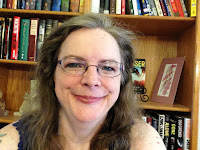(This is a rerun, originally written in 2022, but this is a perennial reminder that Resistance is always present and we need to keep it at bay.)
I’ve known about Steven Pressfield for a good number of years. In fact, I have his blog feed in my Feedly app and I am a subscriber to his email. But in all that time, I had never sat down and read his most famous non-fiction book: The War of Art: Break Through the Blocks and Win Your Inner Creative Battles.
I guess I just wasn’t ready for it. I believe that there is always a time and place for certain things to occur, and the first quarter of 2022 proved to be especially difficult for my writing life. So difficult, in fact, that I stopped and questioned whether or not I should keep going. Somewhere in that miasma of thoughts and feelings and doubt this book popped in front of my eyes. I had already started back on the upswing via my own journaling but I shrugged and thought why not.
Wow. This book opened my eyes, wide, to see that not only was I not alone in my struggles (we all struggle), but Pressfield laid out a definition of my challenges and a roadmap through them.
Most importantly, perhaps, was this: Pressfield gave the challenge, the obstacle we all face, a name: Resistance. That is the focus of Book 1 of this short but powerful book. Resistance: Defining the Enemy. Pressfield then goes on to list all the things that Resistance is, such as Internal, Universal, and Insidious. He points out that Resistance is strongest right near the finish list, it often makes you unhappy, and carves a place in your mind for self-doubt and self-rationalization.
Very quickly as I started reading the print version of this book I grabbed a pencil and started underlining key passages. I kept underlining all through Book 1, seeing myself in the words.
Book 2: Combating Resistance: Turning Pro serves as the antithesis. It is the writer/artist as hero. Key to this section is in the sub-title: Turning Pro. It is the light bulb moment when a writer decides he is no longer just going to write for fun, but to be a professional writer. Pressfield lists many traits of the professional mindset. Personally, I found I already do many of them—is prepared; we show up every day; we are patient; we demystify the writing process—so it made me question why I was in such a state as to even think about quitting.
But, as Pressfield states, “The battle is inside our own head.” It always is. Always. It can be frustrating to be in a profession where dwell-doubt is constant, but there you go. The mountaintop experience of a writer/artist is also very high.
The last book, Beyond Resistance: The Higher Realm, makes the case for the power of an artist’s way of life. He lays out the evidence that there exists for artist a sometimes magical place where our imaginations and our physical efforts to find our dreams connect. He divides artist into two camps: those that think hierarchically and those that think territorially, using the animal kingdom as an example. By the time I reached the end of the book, pencil tip well worn for underlining so many thing, I smiled. So many of Pressfield’s comments seemed self-evident, and yet I struggled. We all struggle. It is part of the artist’s way of life.
But a book like The War of Art clears out the cobwebs of doubt and shows us a way forward.
I ended up dictating all the underlined passages into my phone and created a 14-page file. It is my own outline of this important book. I know that I’ll encounter Resistance again. It is inevitable. But I also know a means to overcome it. And I’ve got my own printed set of pages to remind me how.
If you are struggling—and even if you’re not—I encourage you to read this book and see if you can turn yourself around.
I want to leave you with one of my favorite passages of the entire book. It explains why it is important to create and maintain a writing habit.
Someone asked Somerset Maugham if he wrote on his schedule for only when struck my inspiration. “I write only when inspiration strikes,“ he replied. “Fortunately it strikes every morning at 9 o’clock sharp.”
That’s a pro.
In terms of resistance, Maugham was saying, “I despise resistance; I will not let it phase me; I will sit down and do my work. “
Maugham reckoned another, deeper truth: that my performing the Monday and physical active sitting down and starting to work, he set in motion a mysterious but infallible sequence of events that would produce inspiration, as surely as if the goddess had synchronized her watch with his. He knew if he built it, she would come.








